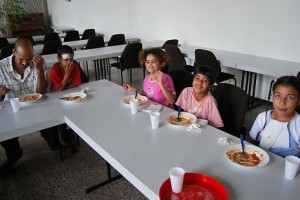 The summer holidays some Sahrawi children from the Tindouf camps spend with host families in Spain, France, Italy or elsewhere, are usually turned in a pro-Polisario and anti-Morocco propaganda campaign.
The summer holidays some Sahrawi children from the Tindouf camps spend with host families in Spain, France, Italy or elsewhere, are usually turned in a pro-Polisario and anti-Morocco propaganda campaign.
But this is nothing new. The Polisario often uses unorthodox methods and practices in its diplomatic war against Morocco about the Western Sahara issue.
One of these methods consists, part of a yearly summer program called “Holidays in peace,” in sending Sahrawi groups of children to countries where the Polisario has a number of supporters among the civil society. The Polisario instructors then make sure that these summer camps are used as a pro-Polisario propaganda and fundraising venue.
Argentinian political expert Adalberto Carlos Azogino said he has been shocked to see how the Polisario uses young children for propaganda purposes.
In an article published on Tuesday by the Argentine independent news agency “Total News” Azogino, professor at the Buenos Aires John F. Kennedy University, strongly condemned these despicable practices that aim only at fooling the international public opinion by providing a distorted image of the Sahara conflict.
In his analysis, Professor Azogino explained that the Polisario, which is short of ammunition, uses shamelessly needy children and at the same time exploits the “good faith” and “altruism” of (Western) foreigners in its misleading propaganda campaigns.
Citing the case of “Holidays in Peace” in Spain, the Argentinian political scientist explained that instead of spending merry holidays and learning the Spanish language, the beneficiary children find themselves involved together with the host families in propaganda campaigns carefully planned by instructors appointed by the Polisario.
Thus, most of the time, the brainwashed children and their host families, misled by the separatists’ “supervisors”, find themselves in the heart of pro-Polisario propaganda and fundraising, not knowing that the largest part of the collected funds will be deposited in the Polisario leaders’ personal banking accounts.